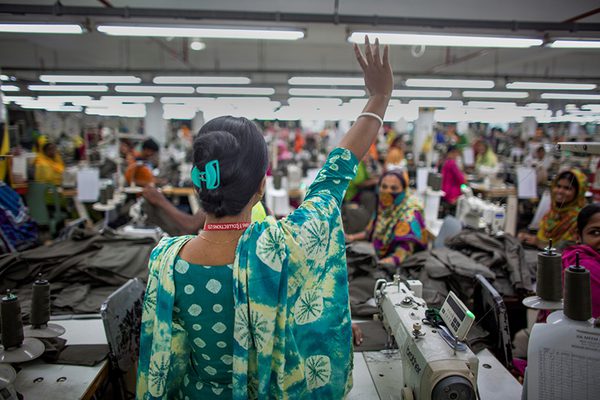The very real risk of labour abuses in the wake of climate disasters
17 January 2025 | 3 minute read

Recent extreme weather events, such as the flooding in Valencia and the devastating fires in Los Angeles have once again brought into focus the consequences of climate change. According to the World Economic Forum, the rate of “natural” disasters in 2019 was three times that in 1989. The Four Horsemen of the climate crisis: wild fires, flooding, typhoons, and food shortages will continue to wreak havoc on every continent.
In the aftermath of these disasters, attention turns to the clean-up. Across the globe companies line up to provide their services, from waste disposal to construction to real estate. Disaster clean-up is a growing industry.
Responding to disasters indisputably requires prompt and effective action across existing and new sectors. But as disasters become more frequent, the response should not come at any cost.
More than 100,000 people are estimated to work occasionally or full time in the disaster clean-up industry. Workers doing the clean up and rebuild are often those who have little and in many contexts are low waged workers drafted in specifically for the task - a transient workforce and one mostly made up of migrants, who are quickly deployed thousands of miles away from home for long periods.
With this urgency comes the very real risk of clean-up workers facing labour rights abuses, low wages, poor accommodation, and sub-standard health and safety provisions as they face risks such as asbestos, respiratory problems, and accidents.
Lessons from Hurricane Katrina
In 2023, at the Global Forum for Responsible Recruitment in New York , I interviewed Saket Soni, a labour rights activist and author of the book The Great Escape: A True Story of Forced Labor and Immigrant Dreams in America. The book focuses on a group of Indian workers recruited via a litany of false promises to travel to the United States as part of the clean-up operations following Hurricane Katrina. The book, as well as telling the story of how they were trafficked into the US, details the appalling working and living arrangements these workers experienced. It reveals that during the crisis, hard won labour rights could be ignored or deliberately violated. The workers in Saket’s story were repairing oil platforms but other companies might include ground clearance, waste transfer and disposal, small and large construction companies, accommodation providers, real estate agencies, nursing and care sectors and many more.
Saket now helps to lead Resilience Force, an organisation working across the US for the voices and rights of unprotected and vulnerable workers employed in clean-up operations. Resilience Force’s work is particularly important in situations where informal working arrangements are common and access to support from trade unions may be limited. The organisation has produced a number of reports highlighting how gaps in policy and practice leave workers vulnerable to exploitation, even in cases when tax payers pick up the bills for reconstruction.
Saket’s experience includes insights into the bonds formed in recovery operations between the clean-up workforce and affected communities. Community members might once have shunned migrant workers, but in recovery situations find themselves dependent upon them, and grateful for their assistance. We saw similar examples during the Covid pandemic when health and care workers were recognised for their critical help, even as many worked on low wage contracts and were subjected to exploitative practices.
Setting a higher bar
Far from undermining rights, the process of awarding clean-up and rebuild contracts presents a unique opportunity for government authorities to actually set a higher bar and foster responsible practices by companies to implement their own human rights responsibilities.
A range of labour standards already exist that need to be effectively implemented. Additional guidance and recommendations from Resilience Force to help workers, companies and local and national state actors involved in disaster clean ups are also available.
The Dhaka Principles for Migration with Dignity outline additional guidance for all stakeholders employing migrant workers, at every stage of the migration cycle.
Furthermore, Governments and Local Authorities have a key role to play in ensuring that effective regulations are consistently and transparently enforced. This protects workers as well as law-abiding businesses striving to operate to high standards.
A crisis situation shouldn’t be a reason to ignore standards designed to protect workers any more than ignoring health and safety standards for the reconstruction of properties. The climate crisis imperils us all, but it also presents an opportunity to raise standards and rebuild systems and industries with human rights at their core.




